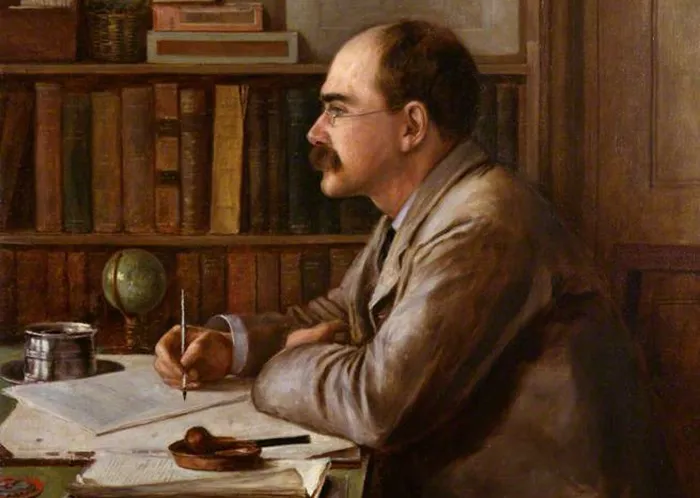The Nobel Prize in Literature is one of the most prestigious awards a writer can receive. Established by Alfred Nobel’s will in 1895, it has been awarded annually since 1901 to an author who has produced “the most outstanding work in an ideal direction.” The first British author to receive this honor was Rudyard Kipling in 1907. At 41, he remains the youngest laureate to date.
Early Life of Rudyard Kipling
Born on December 30, 1865, in Bombay (now Mumbai), India, Rudyard Kipling was the only son of John Lockwood Kipling and Alice MacDonald. His father was a professor and curator of the Lahore Museum, while his mother hailed from a family with literary connections. At the age of six, Kipling was sent to England for schooling, a common practice among colonial families. He attended the United Services College in Westward Ho!, Devon, where he began to develop his literary talents.
Career Beginnings
Kipling returned to India in 1882 to work as a journalist and writer. His time in India deeply influenced his work, providing a rich backdrop for many of his stories and poems. In 1888, he published “Plain Tales from the Hills,” a collection of short stories that showcased his keen observations of Indian life. This was followed by “The Jungle Book” in 1894, a series of stories featuring Mowgli, a boy raised by wolves in the Indian jungle.
Literary Achievements
Kipling’s writing is characterized by its vivid storytelling, deep understanding of human nature, and a unique blend of adventure and moral lessons. His works often reflect the complexities of British colonialism and its impact on both the colonizers and the colonized. Some of his most notable works include:
“Kim” (1901): A novel that follows the adventures of an Irish orphan in British India, exploring themes of identity and belonging.
“Just So Stories” (1902): A collection of whimsical tales explaining the origins of various animals and natural phenomena.
“The Man Who Would Be King” (1888): A novella about two British adventurers who become kings of a remote part of Afghanistan.
Kipling’s poetry also gained widespread acclaim, with poems like “If—” and “Gunga Din” resonating with readers worldwide for their themes of resilience, honor, and bravery.
The Nobel Prize in Literature
In 1907, the Swedish Academy awarded Kipling the Nobel Prize in Literature, recognizing his “power of observation, originality of imagination, virility of ideas, and remarkable talent for narration.” He was the first English-language writer to receive the prize. At 41, he remains the youngest laureate to date.
Legacy
Kipling’s legacy is complex. While his works are celebrated for their literary merit, they also reflect the imperialist attitudes of his time. Some of his writings have been critiqued for their portrayal of colonial subjects and for promoting British superiority. However, contemporary readers and scholars often approach his work with a critical eye, acknowledging both its historical context and its artistic value.
Other British Nobel Laureates in Literature
Following Kipling, several other British authors have been honored with the Nobel Prize in Literature:
John Galsworthy (1932): Best known for “The Forsyte Saga,” Galsworthy’s work delves into the lives of an upper-middle-class family, examining themes of social change and morality.
T.S. Eliot (1948): Born in the U.S. but a naturalized British citizen, Eliot’s poetry, including “The Waste Land” and “The Love Song of J. Alfred Prufrock,” revolutionized modernist literature.
Bertrand Russell (1950): A philosopher and logician, Russell’s writings spanned topics from mathematics to social criticism, advocating for humanitarian ideals and freedom of thought.
Winston Churchill (1953): Renowned as a statesman, Churchill’s literary works, including his historical writings and speeches, earned him the Nobel Prize for their “mastery of historical and biographical description.”
Doris Lessing (2007): Her “The Golden Notebook” is considered a feminist classic, and her body of work addresses themes of gender, politics, and personal freedom.
Conclusion
Rudyard Kipling’s receipt of the Nobel Prize in Literature in 1907 marked a significant milestone for British literature, highlighting the global reach and impact of English-language writers. His works continue to be read and studied, offering insights into the complexities of human nature and the historical context of the British Empire. While his legacy is viewed through a critical lens today, his contributions to literature remain undeniable, influencing countless writers and readers worldwide.

